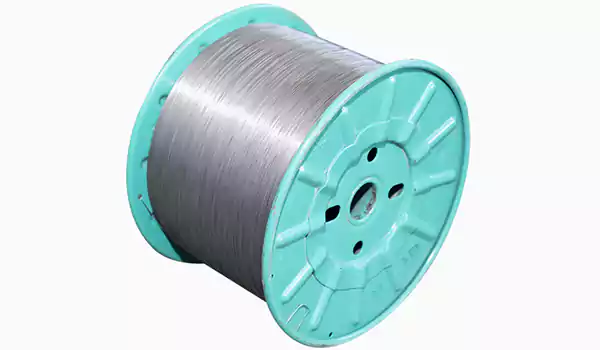
Choosing the ideal metal pipe for your project calls for clarity about its specs and real-world uses. Routine specs refer to metal grade, cross-section, span, and tolerance ranges. Aspects such as rated pressure, thermal tolerance, and corrosion defence are key when choosing pipes for industry, commerce, or residences. Metal pipes serve uses across construction, manufacturing, infrastructure, water supply, gas distribution, drainage systems, structural support and specialty sectors
- Clarifying the task's requirements enables selection of the most fitting piping
- Consult official guidelines and industry norms to clarify metal pipe requirements
- Decide on materials by assessing pressure needs, temperature ranges and corrosive factors
Hollow Steel Sections: Strength, Durability, and Flexible Use
Structural tube steel boasts superior robustness and is widely selected for numerous industrial, structural and commercial projects. Proven endurance arises from specialized forming and treatment processes. Created through drawing or welding steel feedstock into tube forms, they offer high resistance to corrosion and mechanical wear, supporting long-term use in extreme conditions. Shapeable tube steel makes possible an array of profiles from basic circles to sophisticated geometries tailored to project specifications. Applied in multifaceted structural, mechanical and architectural contexts, tube steel's resilient strength, persistent durability and flexible form capabilities secure its essential place in modern building and manufacturingExpanded Metal Mesh for Enhanced Security and Safety
Expanded metal mesh is widely adopted in contexts demanding reliable security and greater safety protections. Its perforated structure supports visibility and also functions as a robust barrier against unauthorized access and hazards. Customization options cover different opening sizes and material thicknesses for target performance
- High durability of expanded metal protects against impact forces, vandalism and extreme weather
- Moreover, straightforward fitting and reduced maintenance needs promote broad implementation
- For shielding essential facilities and personnel safety in manufacturing sites, expanded metal provides a complete protective approach
Steel Mesh Industrial Roles
Steel mesh is used widely in industrial processes due to its structural strength, endurance and adaptable utility. It provides a sturdy framework for filtration, screening, reinforcement and protection purposes. Within building works, steel mesh commonly reinforces concrete to increase tensile capacity and limit cracking. Also, it finds use in bridges, tunnels and large engineering schemes for reinforcement and load-bearing roles. Production lines use steel mesh in filters and screens to separate materials of distinct sizes, enabling sieving, sorting and purification. Additionally, steel mesh is used in safety and security contexts including barriers, fencing and enclosures to restrict access and protect staff. Its strong tensile attributes allow it to absorb impacts and forces, granting consistent protective performance in challenging environments
Metal Pipe Structural Implementations
The strong character of metal pipes ensures their value in a broad range of structural uses. Their shapeability facilitates making tough frameworks that bear loads across varied industries. Used in skyscrapers, bridgework and buried pipeline systems, metal pipes offer backbone support and withstand rigorous environmental forces. Anti-corrosion properties and simple fabrication methods add to their prominence in modern construction workflows
Selecting Proper Tube Steel for Construction
During construction or fabrication planning, picking the right tube steel is fundamentally important. Tube steel provides a balance of strength, durability and relatively light weight making it suited to many uses. However, the wide variety of grades and specifications means navigating tube steel options can be challenging
- Evaluate project purpose, loading requirements and environmental context to ensure suitability
- Attributes like wall thickness, tube diameter and steel grade play direct roles in performance
Heavy structural work benefits from thick-walled, robust tube steel while lightweight products like frames suit thin-walled, lighter tubing
Seek guidance from professional engineers or reputable metal vendors to determine the best tube steel for your requirements
Expanded Metal: Construction Advantages
cold-rolled steel plate Expanded metal supplies a selection of practical and efficient benefits for construction. Lightweight construction supports easier installation and helps diminish labor costs. Plus, the open layout promotes air circulation and drainage which cut down on moisture accumulation. Long-lasting durability makes it fitting for applications requiring substantial resistanceOverview of Metal Pipe Connections
Piping connectors are fundamental pieces of any plumbing or piping installation to maintain fluid or gas passages. Selecting the suitable joint depends on pipe dimensions, material composition, pressure capacity and the application. Typical joint styles comprise threaded, flanged and welded connections, each with distinct strength and sealing characteristics. Threaded connections fasten male and female threads together, flanged types secure plates with bolts, and welded types create permanent seals by applying heat and pressure. Awareness of each connector's properties is necessary to ensure a functional, sealed piping systemMetal Steel Mesh: A Versatile Material for DIY Projects
Steel mesh provides robustness, longevity and flexibility for diverse DIY tasks. The open lattice structure is ideal for building fences, screens and aesthetic elements. Also, its easy-to-handle, lightweight nature makes it popular with both beginner and skilled DIY enthusiasts
- Think of steel mesh for your next practical or decorative DIY task
Steel Pipes: From Plumbing to Architectural Reinforcement
Metallic pipes underpin modern construction and infrastructure with a balance of strength, durability and versatile use. Though first used for sanitation and water systems, metal pipes have advanced into structural duties and support roles. From structural foundations to pipelines for water and gas, metal pipes contribute vital operational roles within modern systems. Strong material properties let them handle large pressures and forces while corrosion protection maintains long-term reliability. Additionally, pipes are highly formable and adaptable to various configurations to meet diverse application needs
Exploring Expanded Metal: Design and Function
Expanded metal offers special design opportunities paired with effective functionality. The open weave supports diverse uses including aesthetic architectural elements and industrial protective systems. Strength combined with aesthetic potential means expanded metal can support loads and still look appealing
- Additionally, the open pattern enhances airflow and makes it suitable for areas demanding temperature control or heat release
- Expanded metal serves diverse fields such as construction, manufacturing, transportation, automotive and decorative arts